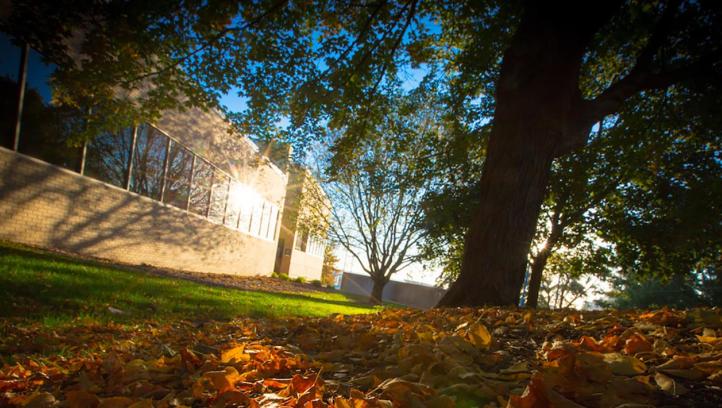
Are Native American legislators pursuing Native issues? Researchers dig in

Twenty-five years ago, Rick Witmer, PhD, asked a question he is still trying to answer.
“It started with me asking one of our professors in grad school, what we knew about this,” Witmer recalls. “He said, ‘Nothing. Absolutely nothing. You’re going to have to go find it out.’”
The mystery concerned the number of Native Americans elected to state legislatures, to what extent those who are elected focus on Native issues, and whether their efforts result in substantive or even symbolic legislation.
Now, with the help of a $2,500 Advancing Research Grants for Indigenous Politics award from the American Political Science Association, Witmer is partnering with Eric Hansen, PhD, an assistant professor of political science at Loyola University, to pursue the question.
The project has Creighton written all over it. Witmer is the Rev. John P. Schlegel, SJ Distinguished Professor of Politics and Government at Creighton, Loyola’s Hansen earned his bachelor’s in political science at Creighton in 2012, and the pile of data that will guide their investigations was gathered over the past 10 years by Creighton students.
“This is an ongoing project that has involved Creighton undergraduates collecting data and now we are going to use that data,” Witmer says.
The two professors are well prepared. Witmer, in addition to publishing research in numerous political science journals, is the author of Forced Federalism: Contemporary Challenges to Indigenous Nationhood, while Hansen has published in the American Political Science Review, the Journal of Politics, and Political Behavior.
The goal is to document the evolving relationship between state legislatures and Indian tribes.
“States were generally told to stay out of Indian business, and tribes worked with the federal government,” Witmer says. “Our research is looking at how those relationships are starting to change and whether Native legislators — American Indians who have been elected to state legislatures — are working on proposing legislation and, if so, is it passing?”
A further question Witmer, Hansen and their student researchers are pursuing is whether legislation being proposed by Native legislators is “substantive” — as in financial issues — or “symbolic,” as in the wearing of Native dress or changing Native-themed team mascots.
“Some states provide money for Native schools, for example, or for things like tribal colleges,” Witmer said, citing examples of substantive legislation. “It depends on the state. It could be building roads. It could be anything that governments do, anything they do to help these tribal governments get things done.”
It might seem intuitive that Native legislators would concern themselves with Native issues, or that non-Native legislators would follow the guidance of their Native colleagues, Witmer says, but until the research is done, and the data gathered there’s no way to be sure.
“We are looking at whether elected Native people are likely to pursue substantive or symbolic policy, and whether they pursue Native-oriented legislation on their committees,” Witmer says.
“Often, there is only one, or just a few Native legislators in many of these states. We effectively don’t know how many there are. We don’t know if their presence leads to more Native-focused legislation or not. These are basic research questions where we would expect a certain outcome, but until we ask and answer that question we just don’t know.”












